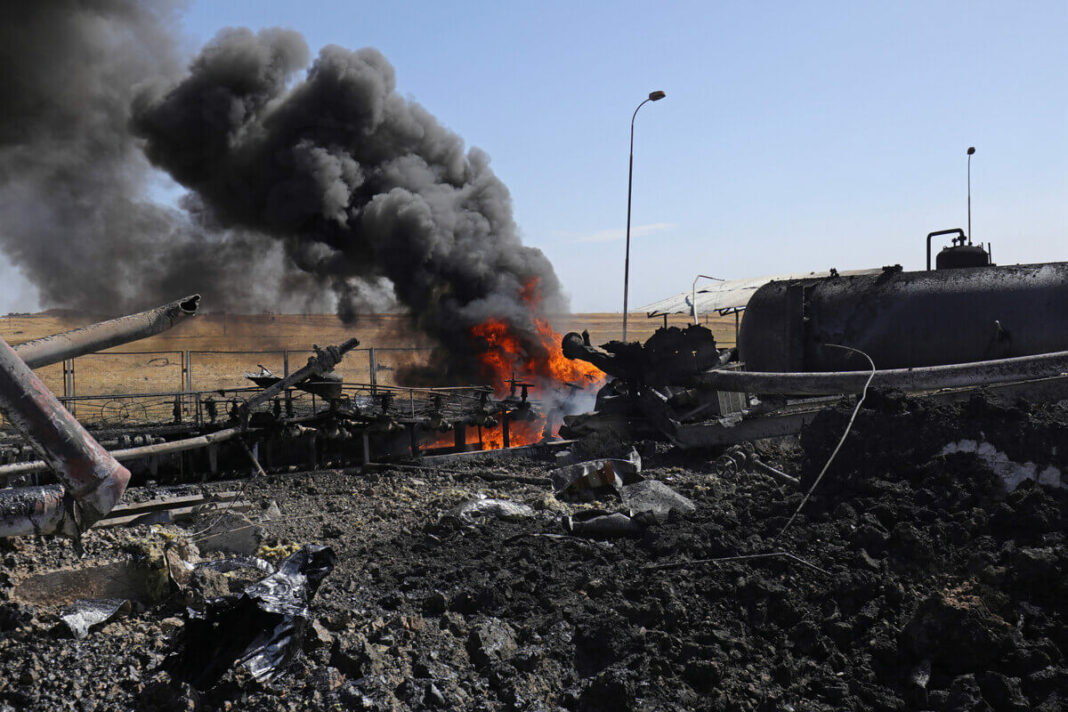Drone strikes by the Turkish Armed Forces (TSK) on Kurdish-held areas of northeast Syria between Oct. 5 and 10 damaged critical infrastructure and resulted in water and electricity disruptions for millions of people, Human Rights Watch (HRW) said on Thursday, as it warned of a deteriorating humanitarian crisis in the region.
On Oct. 5 Turkey launched a bombing campaign in northern Iraq and Syria’s northeast after the outlawed Kurdistan Workers’ Party (PKK) claimed responsibility for a bombing near government buildings in Ankara that injured two police officers. Turkey claimed the attackers came from and were trained in Syria.
The semi-autonomous Kurdish administration has denied the claim and says dozens of people, including security personnel and civilians, have been killed in the Turkish attacks.
The strikes on more than 150 locations in north and east Syria in the governorates of al-Hasakeh, Raqqa and Aleppo killed dozens of people including civilians and damaged civilian structures, HRW said, citing civic groups in the region.
The Kurdish-led Autonomous Administration of North and East Syria, which governs the targeted areas, confirmed that the attacks on water and electrical power stations resulted in the “complete cutoff of electricity and water supply” from the al-Hasakeh governorate.
Critical oil installations and the only operational gas plant for domestic use in northeast Syria were also damaged by the attacks. In the city of al-Hasakeh, an ongoing water dispute since Turkey’s 2019 invasion of parts of northern Syria has already been jeopardizing the right to water for nearly a million people, including residents and displaced communities.
“By targeting critical infrastructure across northeast Syria, including power and water stations, Turkey has flouted its responsibility to ensure that its military actions do not aggravate the region’s already dire humanitarian crisis.” said Adam Coogle, deputy Middle East director at HRW. “People in al-Hasakeh city and its surroundings, already facing a severe water crisis for the past four years, must now also bear the brunt of increased bombardment and destruction, exacerbating their struggle to get essential water supplies.”
Following the attack in Ankara, Turkish Foreign Minister Hakan Fidan said all infrastructure, large facilities and energy facilities belonging to armed Kurdish groups in Iraq and Syria were legitimate targets for the TSK. His remarks were interpreted as a declaration of war.
According to the autonomous administration in northeast Syria, damage to infrastructure caused by attacks that took place between Oct. 5 and 10 impacted an estimated 4.3 million people in the region, with at least 18 water pumping stations and 11 power stations rendered non-operational.
Prior to strikes by Turkey in October, the UN had determined that a staggering two-thirds of the country’s water treatment facilities, half of its pumping stations and a third of its water towers had been damaged in hostilities since 2011, contributing to a severe water crisis across Syria in addition to drought and energy shortages.
HRW said under the laws of war, Turkey and other parties to an armed conflict must not attack, destroy, remove or make useless objects indispensable to the civilian population’s survival, including for water distribution and sanitation.
“Governments and de facto authorities are obligated to realize the right to water by ensuring that people under their jurisdiction or other responsibility have access to sufficient, safe, acceptable, physically accessible, and affordable water for personal and domestic uses. They are also required to refrain from interfering, directly or indirectly, with the right to water in other countries,” it added.



